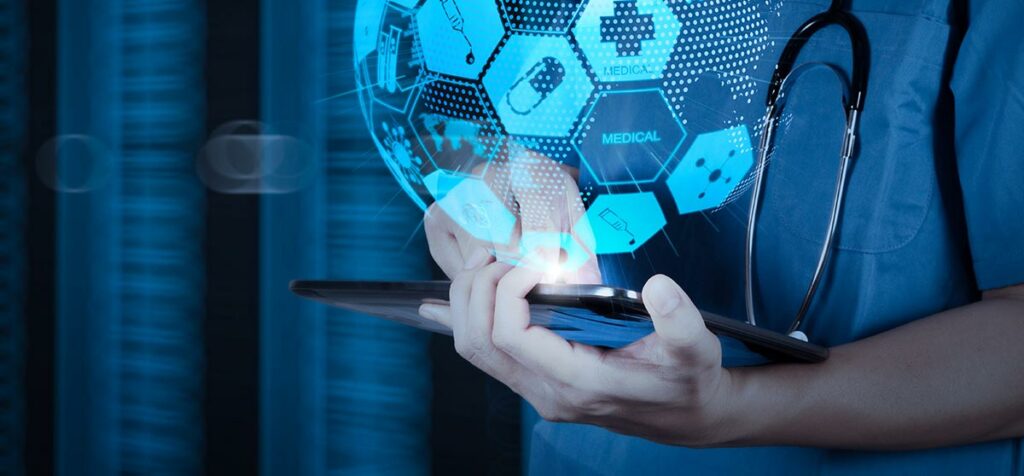In the last decade, healthcare has shifted towards data-driven decision-making. As technology advances healthcare providers can now use data and technology to improve care delivery and their research efforts. This article will explore how data and technology can be used to unify healthcare delivery and research at a local and global level and how to implement such technologies into your own organization with the help of an expert.

Data-Driven Decision Making
Data and technology have played an integral role in the healthcare industry for decades; however, it has only recently been used to aid data-driven decision-making. Data-driven decision-making is a process whereby decisions are aided by physicians based on real world evidence gathered from data analysis. This process helps healthcare providers make more informed choices about patient care while also helping them identify trends or patterns that can help improve patient outcomes.
For example, if a hospital has access to Real World Evidence patient reported outcomes data within a database and other hospitals within its network, it can use this information to compare treatments or medications for patient similar ailments. This enables doctors to make better decisions about which treatments will be most effective for certain patients based on their needs.
Technology Solutions for Unifying Healthcare Delivery and Research
With the rapid advancement of technology, healthcare providers can now leverage various tools and solutions to unify their care delivery with their research efforts. One such tool is artificial intelligence (AI). AI enables healthcare providers to quickly analyze large amounts of data to identify patterns that could lead to more effective treatments or therapies for patients. Additionally, AI can help streamline administrative tasks such as scheduling appointments or ordering supplies, freeing up time for clinicians so they can focus on providing quality care.
Another essential tool is machine learning (ML). ML leverages algorithms that enable computers to learn by identifying patterns in large datasets over time. By using ML systems, healthcare professionals can gain insights into how a particular treatment or therapy might affect different types of patients in different ways—information that would otherwise be difficult or impossible to acquire without having access to a vast dataset. This insight helps inform better decisions about which treatments will be most effective for specific patients, enabling providers to deliver more personalized care tailored to each patient’s needs.
Finally, blockchain is another essential tool to help unify healthcare delivery and research across organizations worldwide. Blockchain is a distributed ledger system that records transactions between multiple parties securely and transparently. In the context of health IT infrastructure, blockchain enables the secure sharing of health records across organizations without compromising patient privacy or security.
It also provides an immutable record of all transactions between parties within the network. This feature makes it especially useful for researchers seeking access to large datasets collected across various organizations worldwide without compromising security or privacy concerns associated with traditional databases used by medical institutions today.
How To Get Started
Data and technology are quickly becoming essential tools for healthcare providers looking to unify their care delivery with their research efforts. To get started, healthcare organizations should begin by assessing the data they have available and identifying areas where technology can help them improve their care delivery processes and their research capabilities.
Additionally, they should invest in tools and solutions such as artificial intelligence, machine learning, and blockchain that can help them better leverage their data to make decisions quickly and accurately. By leveraging the power of technology and data, healthcare providers can make more informed choices about patient care while also helping them identify trends or patterns that can improve patient outcomes.
When To Contact An Expert
If your healthcare organization is looking for help with unifying their delivery of care and research efforts, it may be beneficial to reach out to an expert in the field. An experienced consultant can provide valuable insight on best leveraging data and technology within the healthcare sector and advice on any technical challenges that may arise during the implementation process.
By contacting an expert, healthcare organizations can ensure they are making the most of their data and technology resources and fully capitalize on the potential benefits they offer.
Conclusion
Data and technology play an increasingly important role in informing decisions made by healthcare professionals today—and this trend shows no signs of slowing down any time soon. By leveraging advanced tools such as AI, ML, and blockchain technologies and traditional methods such as analyzing large datasets, healthcare providers can now improve their delivery of care and their research efforts simultaneously at both local and global levels.
As technological advances continue at breakneck speeds, we’ll continue seeing innovative solutions emerge that further revolutionize the way we deliver quality care globally while uncovering new insights into how we can best treat illness and disease moving forward into the future.



